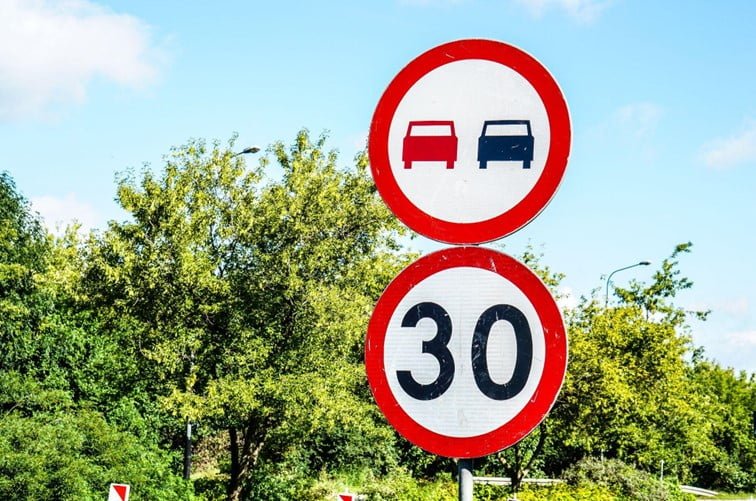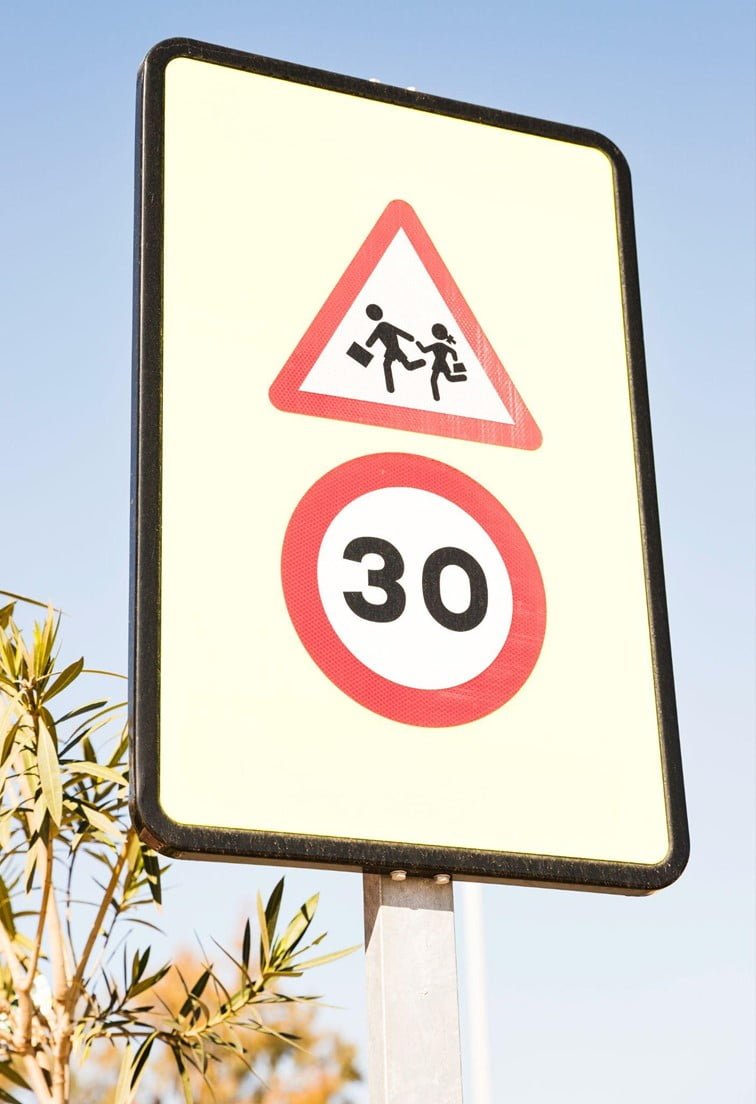
One of Singapore’s most common traffic offences is driving above the prescribed speed limit. What are the offences made to get a speeding fine in Singapore? Everyone should be aware of the laws governing speeding, whether they speed unintentionally or on purpose. Saving money from paying a fine, maintaining a spotless driving record, and being discouraged from dangerous driving are reasons to avoid committing a speeding offence.
Whether you intend to increase your speed or not, you have breached the law if you are caught driving too fast above ther permitted limit. The Police use great discretion because it is a “strict responsibility” offence and charge someone with speeding rather than a more severe infraction like reckless driving. Here’s What You Need To Know About Speeding:
Know Your Traffic Offence

But first, let’s know what Singapore’s speed limit is. The speed limit in Singapore ranges from 30 km/h to 90 km/h, depending on the:
- The road’s characteristics. The speed limit will be reduced if a particular section of the road has multiple contours and twists.
- Road users’ demographics. The speed limit will be reduced if most road users are elderly or young children
- Land use in the vicinity. The speed limit will be reduced if the route is within a residential area.
- The school zone. Cars are only permitted to travel at a maximum speed of 40 km/h:Between 6:30 and 7:45 in the morning , 12 to 2:30 in the afternoon, 6 to 7 in the evening. These are the optimal times to pick up or drop off pupils from the school. There are signboards with amber flashing lights at the start of these zones; the 40 km/h limit should be adhered to.
- Silver Areas. These are specifically designated areas in older neighbourhoods with a larger elderly population. Most Silver Zones typically have a speed limit of 40 km/h; however, the LTA is testing a further reduction to 30 km/h in a few estates.
The Land Transport Authority enforces extra speed limits based on a vehicle’s weight and capacity. On regular highways, the speed restriction remains 50 km/h for all automobiles, motorcycles, buses, coaches, and light commercial vehicles (up to 3.5 tonnes or 15-passenger seating capacity).
Expressways have speed limits of 60 km/h for buses and trucks and 60–70 km/h for light commercial vehicles. Cars and motorcycle riders can travel at speeds of up to 70 to 90 km/h on expressways.
In tunnels, buses and coaches are limited to 50-60 km/h, whereas light commercial vehicles are limited to 50-70 km/h. Cars and motorcycles can go at speeds ranging from 50 to 80 km/h. The penalties for breaking the speed limit vary between heavy and light vehicles.
What Constitutes A Violation Of The Speed Limit?

Composition Fine
A composition fine is a payment made to avoid appearing in Court and facing prosecution for your speeding offence. Your fee will be determined by your vehicle’s size, weight, and speed.
Composition fines, for example, are used for minor traffic violations where the speed limit is not violated by more than 40 km/h. The “offer of composition” will be stated unequivocally in your notice.
The Court will file charges against you if you don’t pay the fine. Paying ahead is a good idea because the fine rises the longer you wait to pay.
For light-duty vehicles, a composition penalty of $150 to $300 is normal. If you’re driving a heavy truck, the fine will range from $200 to $400, depending on how much you exceeded the limit.
Demerit Points
A driver will receive demerit points under the Driver Improvement Points System (DIPS) if they exceed the speed limit. The amount of points is based on speed. After a speeding offence, the driver will receive a message outlining the number of demerit points and their demerit status.
Demerit points are given as follows:
- 4 Demerits- Up to 20 km/h
- 6 Demerits- 21-30 km/h
- 8 Demerits- 31-40km/h
- 12 Demerits- 41-50km/h
- 18 Demerits- 51-60km/h
- 24 More Than 60km/h
Are Demerit Points Revocable?
The points could be removed if a driver doesn’t receive extra points for an entire year after the offence.
Attending a Safe Driving Course (SDC), which erases 4 points from the driver’s record, is another way to eliminate them.
An SDC is not open to everyone. This option may only be used by the following:
- A vehicle driver with a valid licence
- A driver having between 8 and 23 points, no active suspensions, and no other offences
- A driver has a history of suspensions and 4 to 11 demerit points.
The driver who can’t go for the SDC include(s):
- Disqualified driver
- Drivers who have either completed or are about to complete probation
- Driving professionals who have recently attended an SDC
A driver is limited to two Safe Awareness Courses within ten years.
Prosecution In Court
Anyone who violates the serious offence of exceeding the posted speed limit by more than 40 km/h must appear in Court to face charges. They won’t, however, have the choice of a composition fine.
According to Section 67(A) of the Road Traffic Act (RTA), the Court has the authority to impose fines on repeat offenders up to three times the amount of the prior offence. The maximum sentence for this is ten years in prison.
Suspension Or Revocation Of Driving Licence
Following section 45 of the RTA, the police may suspend a driver’s license if they judge the person as intoxicated or incompetent to operate a vehicle. Police can evaluate if they should have their licence suspended or revoked using the demerit point system and the drivers’ histories.
Non-Probationary Drivers
If you acquire 12 or more penalty points, your driving privileges could be banned for up to 36 months (depending on how many times they have already been suspended).
Drivers who have collected 24 points in 2 years but have never experienced a suspension may have their licence suspended for 12 weeks.
Depending on their history of suspensions, the length of the suspension varies:
- 2nd Suspension – 24 weeks
- 3rd Suspension – 1 year
- 4th Suspension – 2 years
- 5th Suspension – 4 years
Conclusion About The Speeding Fine in Singapore
One should always know the legal procedures to be followed in case you’re fined for speeding in Singapore. We hope that this information will assist you in better understanding the effects of speeding and how it may influence your life.
You may contact us if you are fined for speeding to give you better assistance.
Frequently Asked Questions About The Speeding Fine In Singapore
Can Suspensions Be Reduced?
Drivers facing their first or second suspension can enrol in a Driving Improvement Points System (DIPS) retraining course, which, when successful, will shorten the ban.
For those serving their first suspension, there is a 4-week balance term of suspension following retraining. After retraining, there is a 12-week balance period for those serving a second suspension.
After completing the retraining course, the suspension may be reduced by up to 8 weeks for a first suspension and 12 weeks for a second suspension.
Will My Traffic Offence Be Disclosed In Any Way In The Future?
Generally, since speeding offences are not registrable and do not appear on criminal records, you do not need to disclose them in employment applications.
However, unless your criminal record has been deleted, you must reveal your offence if you are found guilty of causing death by reckless or dangerous driving while speeding.
Remember, if you have been convicted in a Court of law, you must admit to your speeding offence even after your criminal record has been deleted.
For more information about employment applications with a criminal record, please click this link.
Why Is It Best To Avoid Speeding?
In addition to sparing yourself the pain and suffering, avoiding legal repercussions can result in financial savings when renewing your insurance. They should be aware that in addition to their No-Claim Discount, drivers can receive a 5% discount when renewing their auto insurance if they have not accrued any traffic infractions for three years.
You may also learn more about how to handle road traffic accident claims made against you.
Being charged with a drink-driving offence can be unpleasant from a legal aspect. If you find yourself in this predicament, contact our expert lawyers for a free consultation.
Is Speeding For Emergency Acceptable?
An emergency would only provide an adequate defence if it could be proven that you had no other choice or were operating an emergency vehicle, which is exempt in specific circumstances.